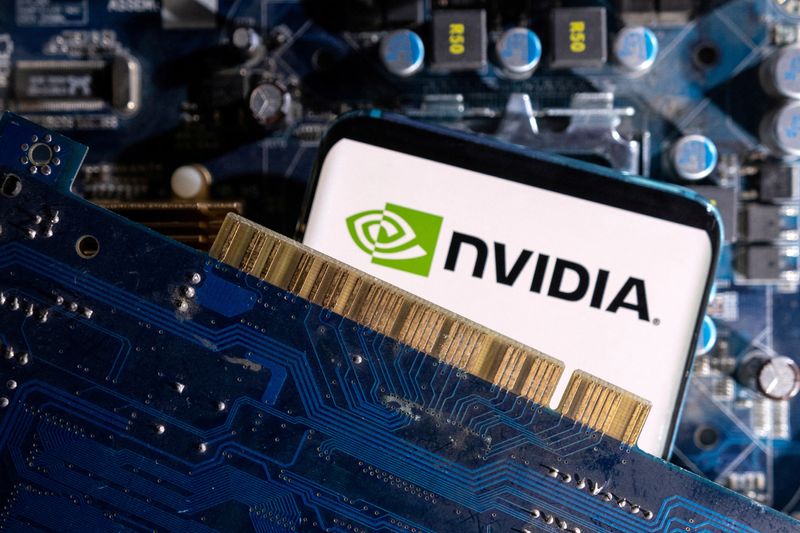Nvidia among investors in xAI’s $20 bln capital raise- Bloomberg
Investing.com--Nvidia (NASDAQ:NVDA) shares gained in pre-open trading Friday the AI chip giant planning to release a less-powerful version of its H20 artificial intelligence chip in China within the next two months, as it moves to meet stricter U.S. export restrictions, Reuters reported on Friday.
NVIDIA stock last traded up 0.4% in pre-open trading.
Nvidia has informed several major Chinese customers, including cloud computing services providers, of the move, Reuters reported, citing three sources familiar with the matter.
The H20 is the most powerful chip that Nvidia is allowed to sell in China, at least under Biden-era export controls. But the Trump administration recently signaled stricter controls on technology exports to China, with Nvidia now requiring a license to export the chip to China.
In April, NVIDIA announced a $5.5 billion write-off related to U.S. export controls on the current version of the H20 chip that was being sent to China.
Downgrading the chip -- largely by lowering its computing power and slashing its memory capacity -- is expected to help Nvidia bypass the new controls. U.S. President Donald Trump has largely followed the Biden administration in further tightening China’s access to advanced AI tech.
The H20 chip is at the forefront of China’s AI development efforts, and is used by a slew of companies ranging from AI startup DeepSeek to internet giants such as Baidu (NASDAQ:BIDU) and Alibaba (NYSE:BABA).
But a downgrade in the chip is expected to make it less competitive in Chinese markets, leaving Nvidia vulnerable to competition from home-grown developers such as Huawei. The latter already makes a competing AI chip for Chinese markets.
China accounted for about $17 billion in revenue for Nvidia, or roughly 13% of total sales, in the fiscal year to January 2025. CEO Jensen Huang has emphasized China’s importance to the company, having visited Beijing in April.
Earlier this week, Huang said the AI market in China will soon be $50 billion per year and that America needs to compete there.
(Frank DeMatteo contributed to this article)
